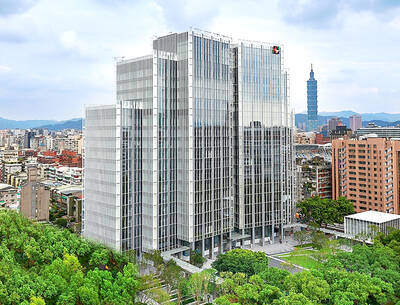Singapore's inflation accelerated last month at the fastest pace since 1982, increasing pressure on the central bank to allow its currency to appreciate further to ease rising import prices.
The consumer price index jumped 6.6 percent from a year earlier, after gaining 4.4 percent in December, the Department of Statistics said yesterday. Prices rose 1.3 percent from December.
The Monetary Authority of Singapore this month increased its forecast for inflation this year, predicting consumer prices will gain at more than double last year's pace. The central bank has allowed the currency to climb to the strongest in 11 years amid government warnings there is a limit to the Singapore dollar's appreciation because it reduces competitiveness.
"The potential for a stronger currency is still there because the risk of inflation staying high is increasing," said Song Seng Wun, an economist at CIMB-GK Research in Singapore.
Singapore's central bank expects inflation to average between 4.5 percent and 5.5 percent this year, after gaining 2.1 percent last year.
"The latest inflation forecast has taken into account the expected increase in year-on-year inflation in the first half of the year," the government said in a statement yesterday. "In the second half of 2008, year-on-year inflation is expected to moderate significantly."
Electricity tariffs have climbed for three consecutive quarters, while rising prices of daily food essentials prompted Singaporean Prime Minister Lee Hsien Loong (
Food prices, which make up 23 percent of the index, rose 5.8 percent last year from a year ago, after December's 5.5 percent increase.
The Singapore dollar has gained 2.3 percent this year, climbing to the highest since 1997. The central bank, which has sought a "gradual and modest" strengthening in the currency since April 2004, said in October it would allow a "slightly" faster appreciation in the Singapore dollar.

UNCERTAINTY: Investors remain worried that trade negotiations with Washington could go poorly, given Trump’s inconsistency on tariffs in his second term, experts said The consumer confidence index this month fell for a ninth consecutive month to its lowest level in 13 months, as global trade uncertainties and tariff risks cloud Taiwan’s economic outlook, a survey released yesterday by National Central University found. The biggest decline came from the timing for stock investments, which plunged 11.82 points to 26.82, underscoring bleak investor confidence, it said. “Although the TAIEX reclaimed the 21,000-point mark after the US and China agreed to bury the hatchet for 90 days, investors remain worried that the situation would turn sour later,” said Dachrahn Wu (吳大任), director of the university’s Research Center for

Alchip Technologies Ltd (世芯), an application-specific integrated circuit (ASIC) designer specializing in artificial-intelligence (AI) chips, yesterday said that small-volume production of 3-nanometer (nm) chips for a key customer is on track to start by the end of this year, dismissing speculation about delays in producing advanced chips. As Alchip is transitioning from 7-nanometer and 5-nanometer process technology to 3 nanometers, investors and shareholders have been closely monitoring whether the company is navigating through such transition smoothly. “We are proceeding well in [building] this generation [of chips]. It appears to me that no revision will be required. We have achieved success in designing

PROJECTION: KGI Financial said that based on its foreign exchange exposure, a NT$0.1 increase in the New Taiwan dollar would negatively impact it by about NT$1.7 billion KGI Financial Holding Co (凱基金控) yesterday said its life insurance arm has increased hedging and adopted other moves to curb the impact of the local currency’s appreciation on its profitability. “It is difficult to accurately depict the hedging costs, which might vary from 7 percent to 40 percent in a single day,” KGI Life Insurance Co (凱基人壽) told an investors’ conference in Taipei. KGI Life, which underpinned 66 percent of the group’s total net income last year, has elevated hedging to 55 to 60 percent, while using a basket of currencies to manage currency volatility, the insurer said. As different

Taiwanese insurers are facing difficult questions about the damage of recent swings in the New Taiwan dollar. Regulators might have a partial solution: letting firms change how they calculate the value of foreign currency assets. The Financial Supervisory Commission (FSC) is considering allowing insurers to use six-month average exchange rates when they calculate risk-based capital in their semiannual reports, a shift from the current system where insurers use exchange rates on the final day of reporting. The change could ease pressure on the US$1.2 trillion insurance sector, whose huge exposure to foreign assets came into the spotlight earlier this month after a